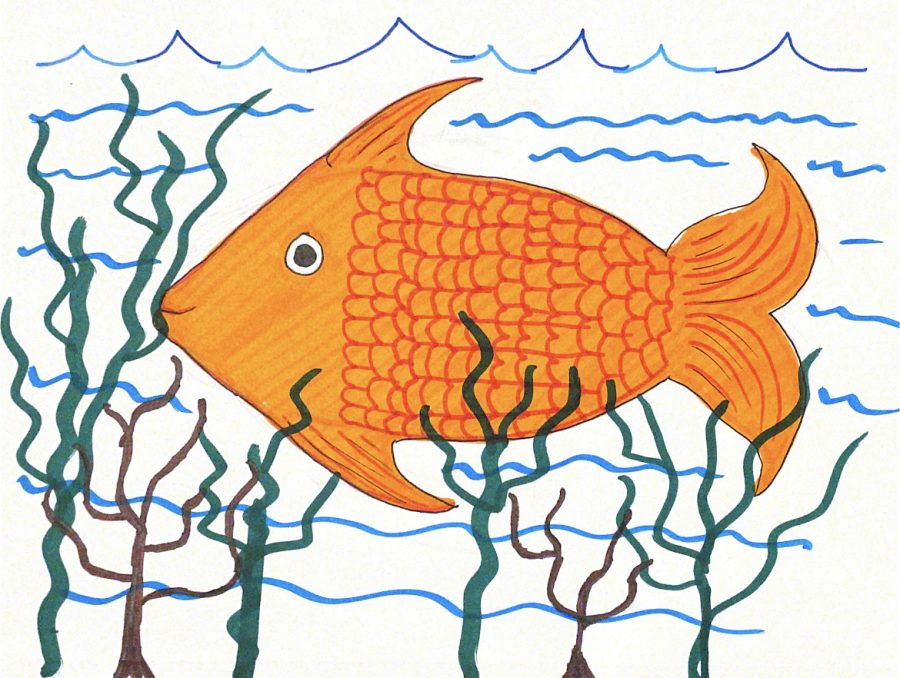Invasive goldfish infest lakes
Drawing of abnormally sized goldfish in a lake.
August 21, 2021
When thinking of goldfish, it’s easy to imagine the golf-ball sized fish you get at the fair, but recently found in the lakes of Michigan were goldfish relatively the size of footballs.
When these originally small goldfish get released in the lakes, they forage for food by exposing and eventually uprooting various plants. The reason these goldfish swell up to their size is dependent on their large food intake.
Not only does this cause complications to our water quality, but once goldfish are released to the wild, they then become considered an invasive species. As a result of this concern, some states have made dumping fish in the lakes illegal. But what consequences does this have on future ecosystems?
“It is usually pretty devastating because by nature, if it is invasive, that means they’re reproducing really quickly, they’re having deleterious effects on the native floor and the native fauna. They’re totally disrupting the systems and it’s usually because they don’t have any population control,” said Mrs. Fewster, the AP Environmental Science teacher.
With the knowledge that these species are invasive, there are a few things that can be done to help.
“Education, for one, to get people not to dump their goldfish in the lakes. Second, if we can get some kind of removal, so hunting regulations. Some kind of regulations of things you might not be aware of, it’s not like a deliberate act, it’s more of an incidental kind of thing. So there should be some checks and regulations set up,” said Fewster.















